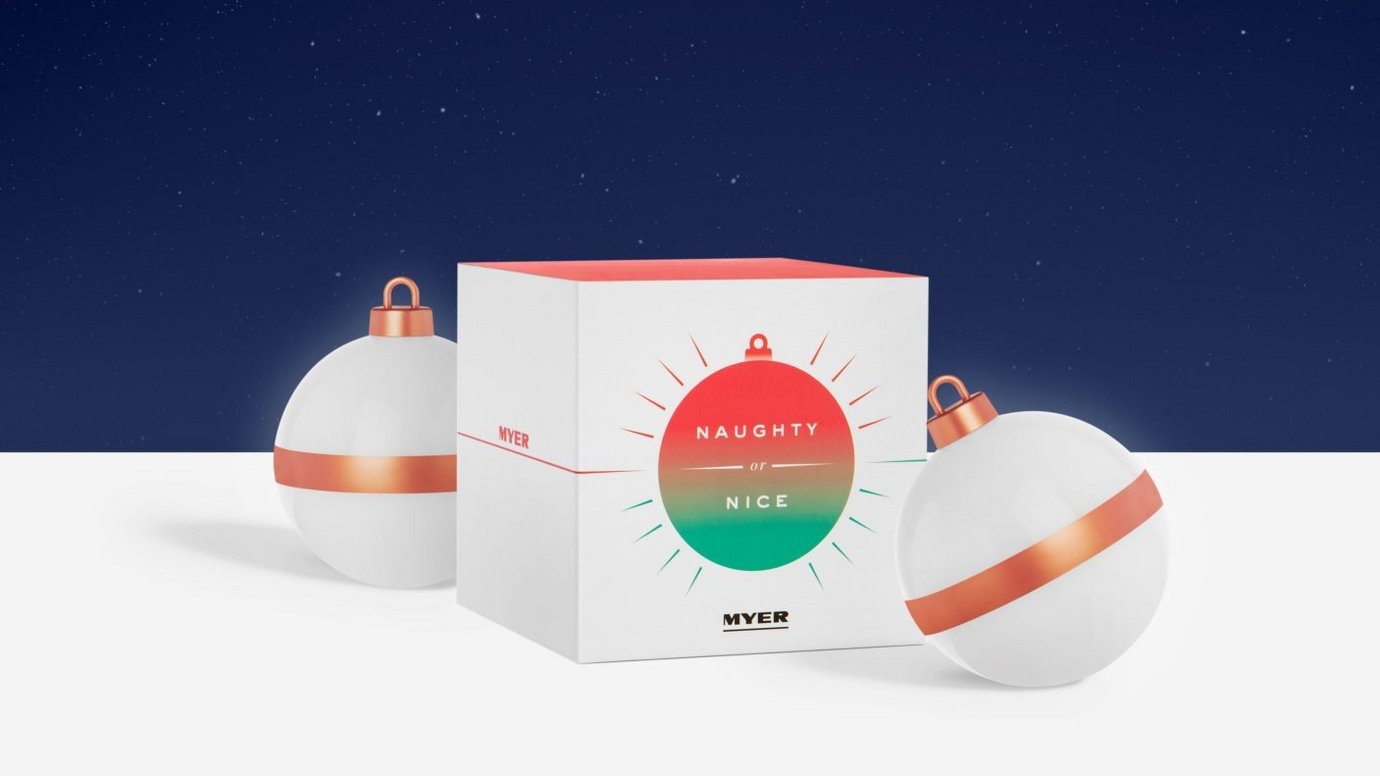Campaign of the Week
Campaign of the Week: Myer, Naughty or Nice Baubles /
Australian department store develops a Christmas bauble to get kids to behave and drive footfall in-store. From Contagious I/O.

Australian retailer Myer has created a Christmas ornament that changes from green to red to indicate how naughty or nice you’ve been. Kids think it’s magic, Santa or both. But the parents who bought it (for AUD$19.95, at any Myer department store) know that it’s controlled by Bluetooth.

The bauble pairs up with an app, so parents can change the colour to coerce their kids into good behaviour, or be faced with a stocking full of coal. Have more than one child? Don’t worry, you can separately program several different baubles from the same app.
Clemenger BBDO in Melbourne created the Naughty or Nice Baubles, as well as films promoting them.
The campaign is also supported by outdoor executions, which will feature data gathered from the baubles by location. The outdoor ads will also be updated in real time. If the majority of baubles in New South Wales switch from naughty to nice, for example, the billboards will adjust accordingly.

Contagious Insight /
Footfall driver / Getting people in store is Myer’s goal here. ‘This year, we wanted to inject a little bit of magic into the Christmas retail period, and give Australians a way to keep track of how naughty or nice they’ve been ahead of the big day,’ Andrew Egan, Myer’s group general manager of marketing, said in a press release. ‘By creating this exclusive product, we hope to give consumers an extra reason to visit Myer for their Christmas shopping needs.’
It makes sense for Myer to want to encourage people to come in store because that’s where spontaneous purchases happen. A 2017 study, by online credit card marketplace CreditCards.com, found that 68% of impulse purchases in the US are still made in bricks-and-mortar stores. When people shop online, they tend to have a specific item in mind and go straight to it – often even ignoring what’s on the home page and going straight to the search bar – whereas in store, the products that are more visible often sell better.
As Rei Inamoto, partner at Brooklyn agency Inamoto & Co., told us in an interview about a Uniqlo chatbot that he designed to drive footfall: ‘People end up spending more in store because, even though they might have just come in for a pair of socks, this item is on the shelf and they like it, so they end up buying it.’
Branded reminder / As well as getting customers into Myer stores, this campaign brings Myer into customers’ homes. The bauble, as well as the smartphone app, will serve as a constant reminder of the brand throughout the festive period, keeping it top of mind at the exact time everyone’s planning what presents to buy.
This association will be positive, because Myer is positioning itself as an ally to parents by providing them with a tool to get their kids to behave. And will inextricably link Myer to the festive season, which is ideal for a department store as its usually the most lucrative time of the year. Think Christmas, think Myer, then go buy all your Christmas presents from its vast array of shops. By connecting its brand so thoroughly to Christmas that it’s actually on customer’s trees, Myer is increasing the chances that its brand will be the first thing people think of when deciding where to go Christmas shopping.
Cultural precedent / This isn’t the first object that’s been created to help parents coax their kids into doing what they’re told during the holiday season. In 2004, Chanda Bell published the book The Elf on the Shelf, which told the story of an elf whose job it was to watch children and report back to Santa, so he could decide his naughty or nice list. Each of the books came with a little elf doll, which parents could place around the house to keep an eye on their kids.
It’s not just a niche quirky thing, CNN Money reported last year that more than 11 million copies of the book and its elf had been sold. So while at first it might seem a little mean to trick your kids with threats of the naughty list, remember many people have done it already so it’s probably harmless. The fact that parents have done it before also shows that it’s an established behaviour.
The Contagious I/O intelligence tool is constantly updated with case studies, in-depth strategy interviews, stories about new technologies and trend reports. If you would like to find out more about how you can get access to this resource, click here.
Want more of the same? /
We don’t just write about best-in-class campaigns, interviews and trends. Our Members also receive access to briefings, online training, webinars, live events and much more.






